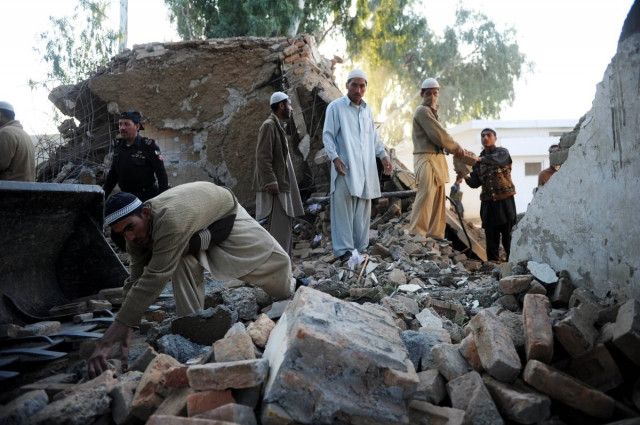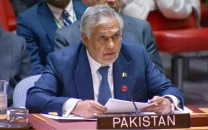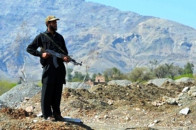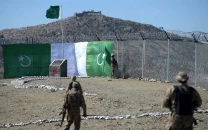Anti-Taliban militias undeterred by bombs
Militias lack resources, investment needed to fight militancy in tribal areas.

The bombers attacked the office compound of the top government official in the Mohmand region on Monday during a meeting on ways of strengthening the militias, known as lashkars. At least 40 people were killed and 60 wounded.
"Listen, we are not going to lay down our arms. We will not let the Taliban re-take control of our land. We will fight them," vowed Dilawar Adezai, whose 1,200-strong militia is one of those set up to help the government fight militants.
Adezai was critical of the level of government support for the militias.
"The government doesn't even pay for the bullets we fire. It's very sad. Militants are better off than my men because they get arms and ammunition free and their families receive compensation if they get killed," he said.
Cash-strapped Pakistan needs all the help it can get in the fight against al Qaeda-linked militants bent on destabilizing its US-backed government.
The army has launched several offensives against militants since last year. But its enemies often melt away when attacked, and suicide bombings persist, scaring away foreign investors needed for the fragile economy.
Pakistani authorities have been encouraging Pashtun tribesmen on the Afghan border to revive traditional militias to counter the rising militancy.
Under a centuries-old tradition, ethnic Pashtun tribes raise lashkars in their semi-autonomous regions to fight criminal gangs and enforce their tribal codes.
The Taliban have hit back by assassinating tribal elders and militiamen and carrying out suicide bombings.
"The Pakistani Taliban is very strong and we are not. There is no match. You have seen what they did with those who stood up against the Taliban," said Aisamuddin Mehsud, a tribal elder in South Waziristan who resisted government pressure to form a lashkar.
The stakes are high. Some of the world's most dangerous militant groups have bases and hideouts in the northwest tribal regions. The United States believes its war on militancy cannot be won unless Pakistan removes them.
"You cannot control such a large area for a long time with just soldiers and you have to push residents to take responsibility for the security of their village or town," said a senior military official in the northwest.
"Tribesmen know their lives are at risk and militants will continue to attack them, but they have to fight for their survival."
Mohammad Ali Haleemzai, who heads one of the tribal "peace" committees that oversee lashkar operations, seems determined to help keep the campaign going.
"I cannot bear to see my kids become militants or get killed in a bomb blast or fighting," said Haleemzai, who was in the compound during the Mohmand attack. "This is for the peace. It is a battle for peace and security."
Political analyst Hasan Askari Rizvi said the lashkar had helped the government prevent militants from returning to areas cleared by the military.
The militias, armed mostly with AK-47 assault rifles, conduct patrols and carry out raids with the police. But long-term success against militancy requires more than bravery.
"You have got to help tribesmen financially and militarily. Their areas need a lot of investments and development and if you don't, you will lose their support, and that ultimately benefits militants," said Rizvi.



















COMMENTS
Comments are moderated and generally will be posted if they are on-topic and not abusive.
For more information, please see our Comments FAQ